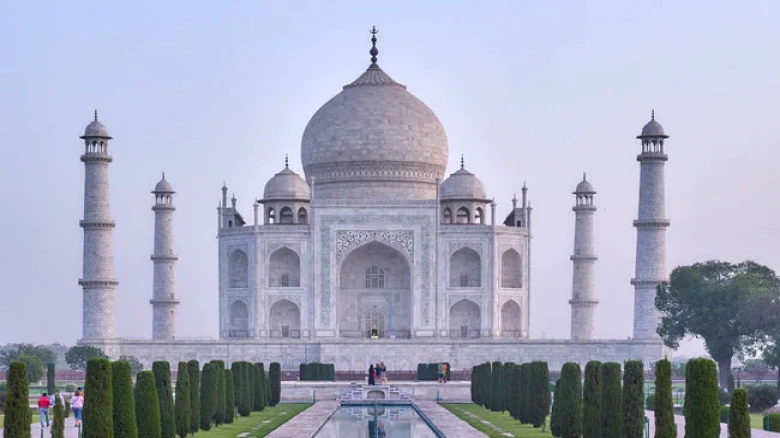Sports

A bench of justices MR Shah and MM Sundresh refused to interfere with the...
Digital Desk: The Supreme Court dismissed a petition seeking the reopening of specific Taj Mahal rooms on Friday, calling it a "publicity interest litigation."
The BJP's Ayodhya unit leader, Rajneesh Singh, submitted the petition, which sought the opening of the Taj Mahal rooms to put to rest the monument's 'alleged history,' including claims that it was a Shiva temple known as 'Tejo Mahalaya.'
A bench of justices MR Shah and MM Sundresh refused to interfere with the Allahabad High Court order that had earlier dismissed the plea.
"The high court was not in error in dismissing the petition, which is more of a publicity interest litigation. Dismissed," the bench said.
The high court had warned petitioner Rajneesh Singh, the media in charge of the BJP's Ayodhya unit, on May 12 that he had failed to show how his legal or constitutional rights were being violated.
The high court also rebuked the petitioner's lawyer for filing the Public Interest Litigation (PIL) petition in hurry, stating that it could not pass an order in the matter under Article 226 of the Constitution.
The petition had also sought the setting aside of certain provisions of the Ancient and Historical Monuments and Archaeological Sites and Remains (Declaration of National Importance) Act, 1951 and the Ancient Monuments and Archaeological Sites and Remains Act, 1958, under which the Taj Mahal, Fatehpur Sikri, the Agra Fort and Itimad-ud-Daulah’s tomb were declared as historical monuments.
The petition, filed in May, asks the Archaeological Survey of India (ASI) to examine the Taj Mahal's 22 sealed rooms for the presence of Hindu idols.
It referenced some historians' and Hindu organizations' claims that the mausoleum was originally an old Shiva temple. The petition requested that the ASI set up a special committee to investigate the sealed chambers and make its findings public.
Later in June, a legal notice was sent to the Centre and the Archaeological Survey of India (ASI) by a group of petitioners seeking the relocation of idols of Hindu deities, which they claim were buried under the staircase of an Agra mosque.
The ASI ended the dispute with a one-line response to a Right to Information (RTI) query.
In response to TMC leader Saket Gokhale's RTI request for proof that there was no temple on Taj Mahal property and that there were no idols in the Taj Mahal's 20 sealed basement rooms, the ASI stated unequivocally that there are no idols of Hindu gods and goddesses in the Taj Mahal's basement, nor was the Taj Mahal built on temple land.
Leave A Comment